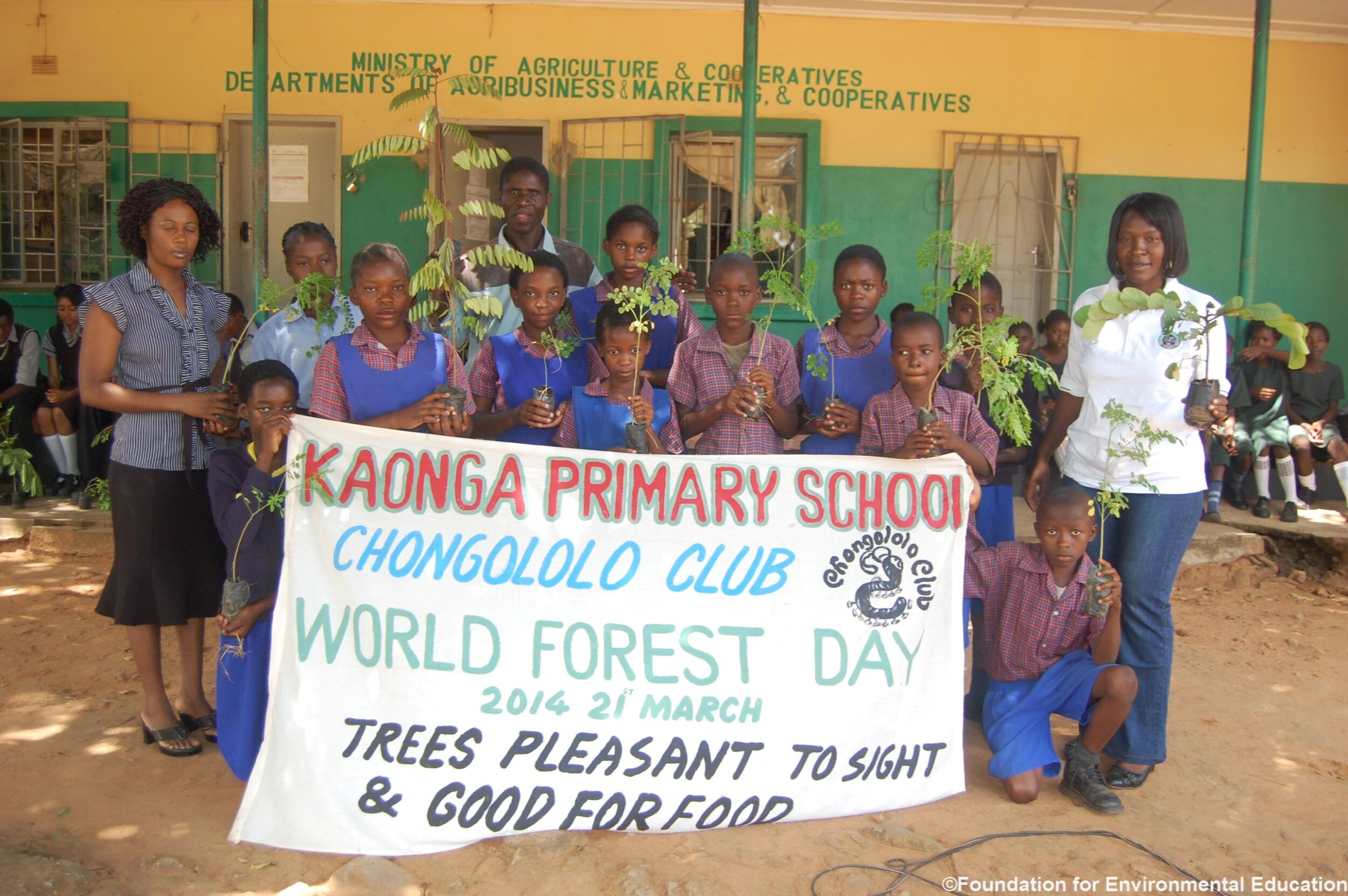In 2014, the Global Forest Fund supported fifteen projects in Sumatra, Bulgaria, Sierra Leone, Tanzania, Bangladesh, Zambia, Ghana and Papua New Guinea
Madrasah Ibtidaiyah Swasta (MIS) Misbahu Dzikri – Kab. Labuhan Batu, N. Sumatra
Sumatra - protecting the ENVIRONMENT
Five local primary schools in Sumatra, along with the Women Islamic Student Student Association of Labuhan Batun, were invited to plant native mango trees as part of the local government’s “Toward Green School” tree planting programme. The participants planted 250 trees in total. The Sumatra Rainforest Institute then taught the students about the importance of forests and what people can do to protect the environment.
Saint Joseph Junior Secondary School, Sierra Leone
Sierra leone - conserving biodiversity
Sixty-five students from Saint Joseph Junior Secondary School in Daru took part in a tree planting event to commemorate World Environment Day. Before the tree planting exercise, a video documentary was shown to students regarding the effects of deforestation and the role trees play in mitigating climate change. In collaboration with other school nature clubs, indigenous plants were planted including an economically viable and medicinal plant called ‘Moringa’.
Burigolini Darus Surat Dakhil Madrasha, Bangladesh
Bangladesh - teamwork for trees
600 students and teachers from four schools in Bangladesh planted over 4,000 trees in four days! Participants in the tree planting events also attended day-long workshops where they learned about the importance of trees, proper seedbed preparation, sapling plantation, irrigation, pest management, fertilisers and composting, and tree health and maintenance.
Mai High School, Papua New Guinea
papua new GUINEA - improving degraded landscapes
As part of a training programme to develop a broader set of skills, Mai High School provided 6 hectares of degraded land to plant trees within the school grounds. With support from Voice of Yongos (VOY), students planted 2,700 trees in 2014 to improve the land. Apart from the tree planting VOY conducted awareness education in each class to educate the students on the importance of tree planting, its purpose, usefulness and the greater long-term benefits it will bring to the rural people. Furthermore, VOY encourages students to continue tree planting in their own communities to combat land and habitat degradation, to improve local ecosystems and to sustain rural livelihoods.
Hristo Botev Primary School, Bulgaria
bulgaria - a green and happy childhood
Four schools in Bulgaria participated in tree planting and environmental education projects. Two kindergartens learned all about the benefits of forests and then planted trees, shrubs and flowers on their playgrounds. Primary and secondary students from the Nikola Vaptsaro school planted trees in their schoolyard and developed a brochure about the local flora and fauna. Students at Hristo Botev Primary School designed an outdoor classroom and planted six Pinaceae Spruce and eight Tilia Lime trees.
Kanyeranyere Secondary School, Tanzania
tanzania - reforestation
Kanyeranyere Secondary School worked together with Action for Ngono Basin Reforestation to plant 4,000 trees in one day! Students were trained in seed storage, weed control, irrigation, the causes and effects of environmental destruction and the use of ecological knowledge to conserve the environment. The students also elected group leaders to encourage the community protect the environment into the future.
Kaonga Primary School, Zambia
zambia - forest education
On World Forest Day, 120 students and teachers, plus members of the public, were invited by the Chongololo Club to learn about the importance of forests for water conservation and climate change mitigation. 200 trees were shared among the six schools to be planted in their schoolyards and other public spaces. A local forestry expert gave a talk about the economically important local Moringa tree and distributed saplings to the public. 70 students then attended a special workshop to learn how to educate others about environmental issues.
Rural Integrated Relief Service, Ghana
ghana - rural integrated relief
In an effort to tackle climate change, the Rural Integrated Relief Service (RIRS) in Ghana believes in connecting schools with teams to deliver opportunities to help protect the environment. The Global Forest Fund enabled RIRS to work with close clan members and schools in Ghana to plant 1,500 trees and seedlings. They raised awareness about the importance of tree planting, monitored the trees and evaluated the project.









